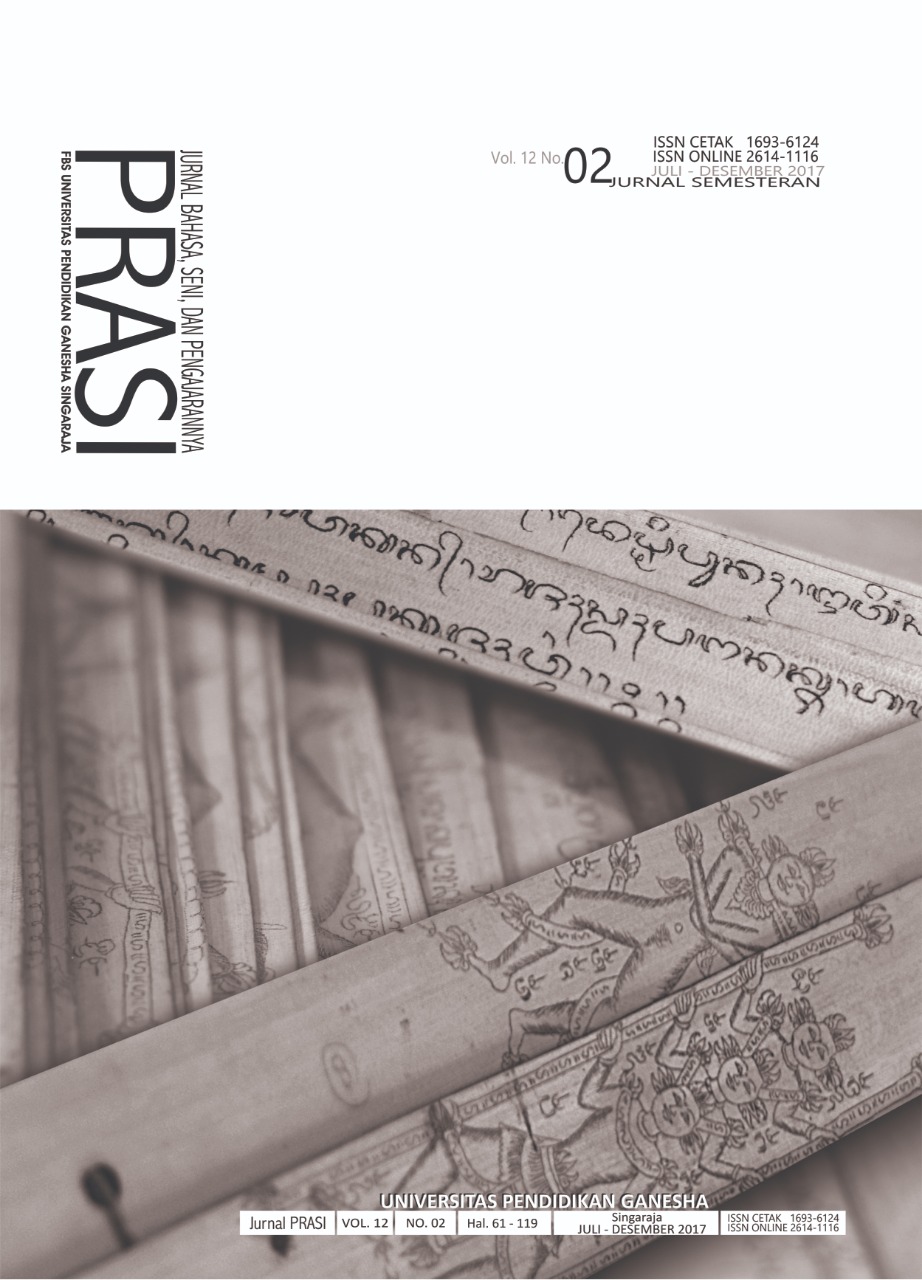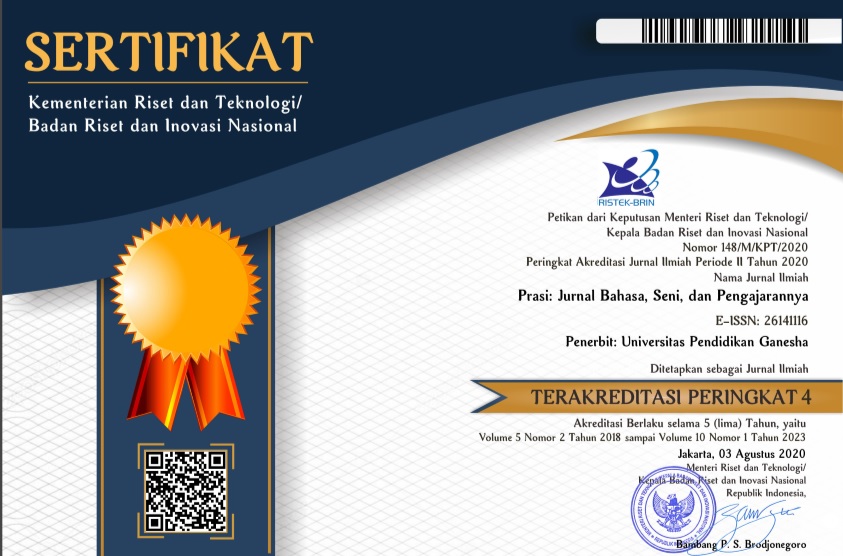PENGEMBANGAN PAKET PERKULIAHAN READING BERKELANJUTAN JURUSAN PENDIDIKAN BAHASA INGGRIS UNDIKSHA
DOI:
https://doi.org/10.23887/prasi.v12i02.13918Abstract
This research aims at developing the syllabus and instructional materials for Reading course series in English Education Department, Ganesha University of Education. This Reading course comprises four series: Reading I (Literal Reading), Reading II (Intepretive Reading), Reading III (Critical Reading) and, Advanced Reading (Reading from the Media). The research was inspired by preliminary findings about unclear transition and focus of each serial of reading course. These include the degree of complexity and coverage of the texts, instructional strategies and teaching strategies. As a matter of fact, reading is a stepping stone for developing other language skills such as writing, speaking and listening (Guthrie& Kirsch, 2007). The first year of the research has resulted in the adapted syllabus and blueprint for the material development. In the second year the instructional materials for levelled reading courses were developed and validated and was checked its relevance and readability. Data analysis found that the product was highly relevant to the syllabus and provide with Engliah language teaching. This indicates that the quality of the product can be categorized as very good and as systematic gradation, focus, depth and scope.Downloads
Published
2017-12-26
Issue
Section
Articles
License
Authors who publish with Prasi agree to the following terms:- Authors retain copyright and grant the journal the right of first publication with the work simultaneously licensed under a Creative Commons Attribution License (CC BY-SA 4.0) that allows others to share the work with an acknowledgment of the work's authorship and initial publication in this journal
- Authors are able to enter into separate, additional contractual arrangements for the non-exclusive distribution of the journal's published version of the work (e.g., post it to an institutional repository or publish it in a book), with an acknowledgment of its initial publication in this journal.
- Authors are permitted and encouraged to post their work online (e.g., in institutional repositories or on their website) prior to and during the submission process, as it can lead to productive exchanges, as well as earlier and greater citation of published work. (See The Effect of Open Access)


.png)
.png)









